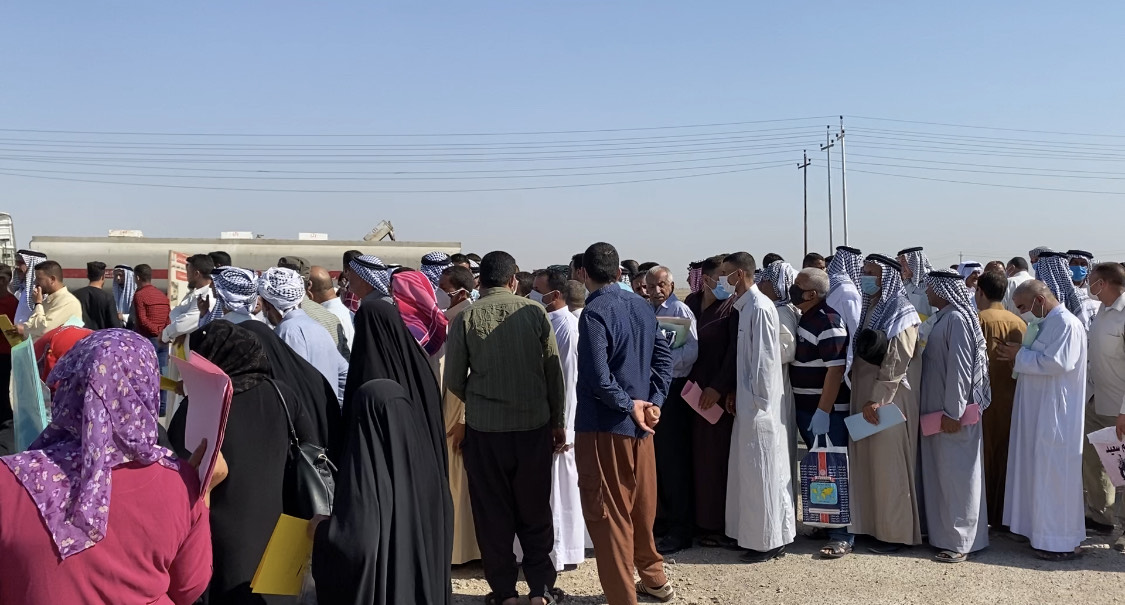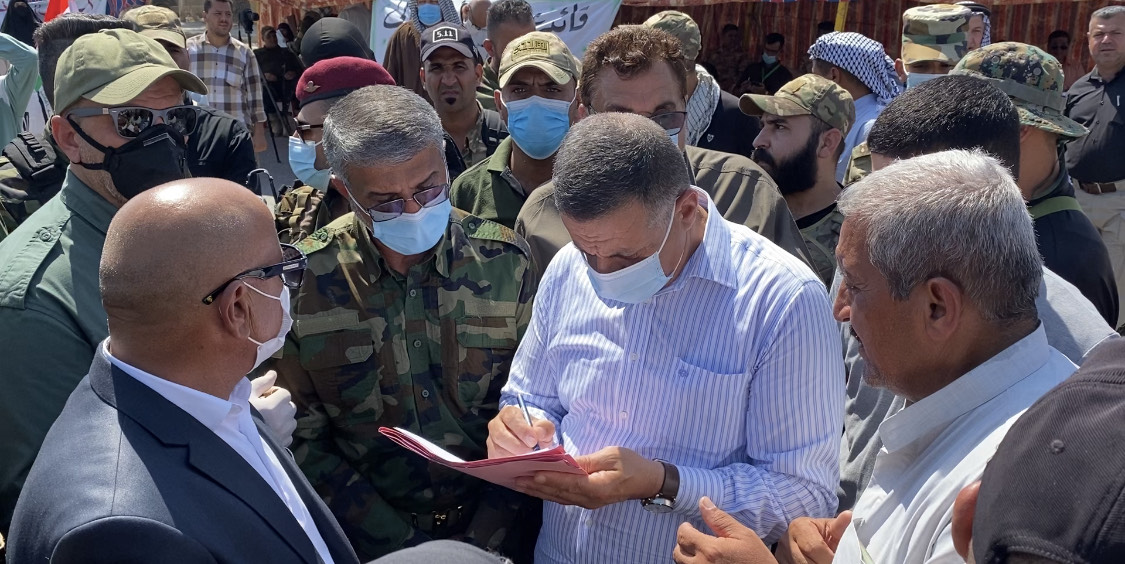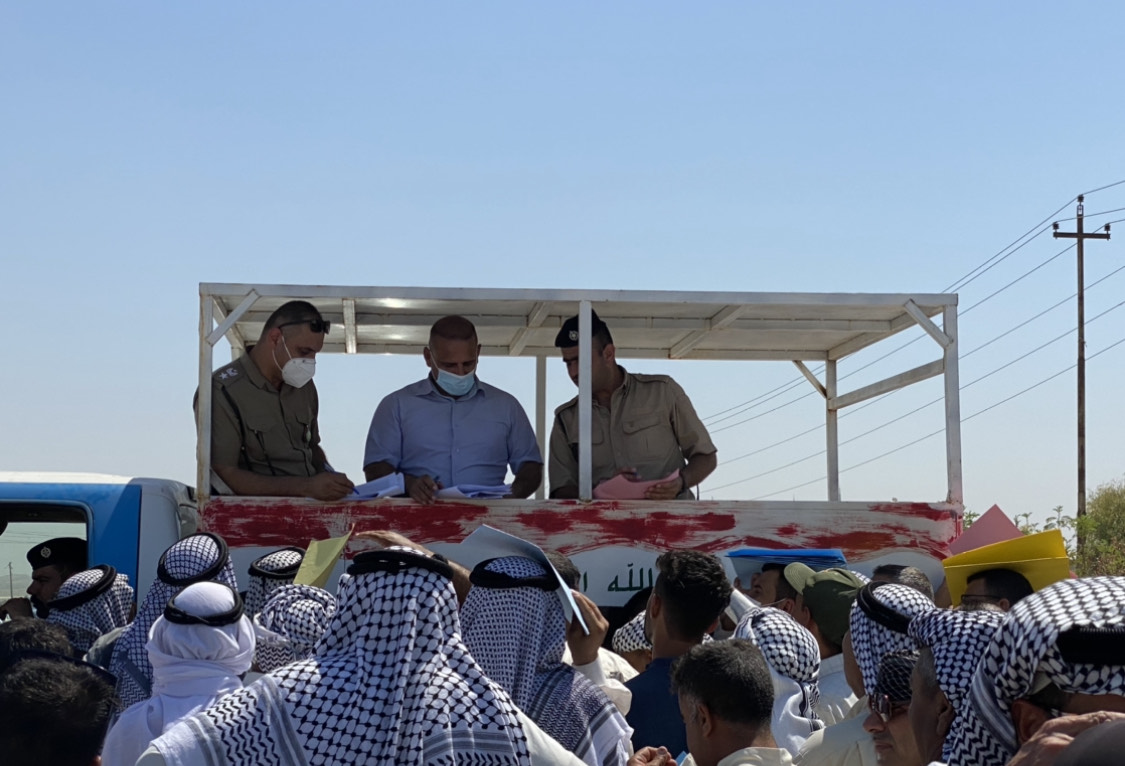After six years living in tents, Ayad Habib was granted permission by security forces to go back to his village located at the footsteps of Hamrin mountains. He will say goodbye to life in tents in Khanaqin, but, as he puts it, he will go back to ruins.
Ayad belongs to one of the 750 displaced families whom on 13 August were granted permission to go back to their villages, the village of Salih Hasib in case of Ayad.
We’ve lost all our livestock, our agricultural lands and water wells are dried up
"We’ve lost all our livestock, our agricultural lands and water wells are dried up, our equipment and machines were looted, so how will we live now?" Ayad added, "most of our homes were destroyed or burned down, and the government sends us back to our areas without any compensation."
The Diyala Province administration has begun the procedures for returning the thirty-sixth batch of the displaced from various camps throughout the province towards their villages. The plan is to end all displacement in the province.

Diyala, 13 August 2020 – displaced people lined up to get permits for returning to their villages in Sa’diya subdistrict – Photo by Ameer Khanaqini
The 750 families come from 18 villages in Sa’diya subdistrict in the Hamrin basin. They were displaced mid-2014 after ISIS attacked their areas.
The decision to return the IDPs comes at a time when their villages lack basic services such as electricity, health centres and schools, all of which were destroyed during the ISIS war. And in addition to all of that, it takes time to rebuild farms and raise new livestock.
Ayad said: “We request compensation and security. We don’t know whether the area has been cleared of bombs and other [explosive] remnants of war, or not.”
Families that have been granted return permits must pass three security filters: the Iraqi Intelligence of the Ministry of Interior; Diyala Operations Command; the Popular Mobilization Forces. Permit will be withheld from any family gets a red flag by any of these security agencies.
Since the start of the return process of the IDPs, nearly 6000 families have obtained permits, and 1500 families are still to get permits, according to Ahmed al-Zarkushi, the head of the Sa’diya subdistrict administration.
There is only one batch of IDPs left to return, and with that, the IDP issue will be over
“There is only one batch of IDPs left to return, and with that, the IDP issue will be over,” al-Zarkushi added.
But he stressed that some of the families who got return permits are not willing to return. “Some of them have jobs and an income [where they now live], that’s why they aren’t going back. Others have their homes destroyed and can’t afford rebuilding them.”
The government is still in the process of investigating the extent of the damage caused to the displaced families in order to compensate them, and this may be among the main reasons why some of the displaced have not returned.
Sheikh Dhia’ Ibrahim, one of the notables of the Sumaida tribe in the Hamrin Basin, who lives in the village of Sayed Ibrahim in the Sa’diya subdistrict, told KirkukNow: "Now we can return to our villages and find out what happened to our homes and properties. Six years passed without me being able to go to my village."
"We have information that some of the homes in the villages were destroyed or burned down. We request compensation for the displaced and before our return, water, electricity and other basic services to be restored."

Diyala, 13 August 2020 – officials checking names of the IDPs to be granted return permits – Photo by Ameer Khanaqini
A special ceremony in the Sa’diya subdistrict was held for the granting of permits for the displaced to return. The governor of Diyala, Muthanna al-Tamimi attended the ceremony, and said: “Yes, their homes have been destroyed and the families no longer have a place to live in. During the visit of the Iraqi Prime Minister to Diyala [in July], I asked him to allocate a sum of money for them to rebuild their homes.”
Yes, their homes have been destroyed and the families no longer have a place to live in
Security forces stress that the villages in Sa’diya are safe, and pledge to protect their lives.
Abu-Aqeel, a PMU commander, told KirkukNow: “We can guarantee the safety of their lives where our forces are stationed. The region is completely stable, but about 60% of the houses are destroyed.”
He added: “Water and electricity [facilities] have been greatly damaged. Schools and medical centres must be renovated.”
Many of those who were granted return permits assured KirkukNow that they will not return to their villages until the basic services are available there.





